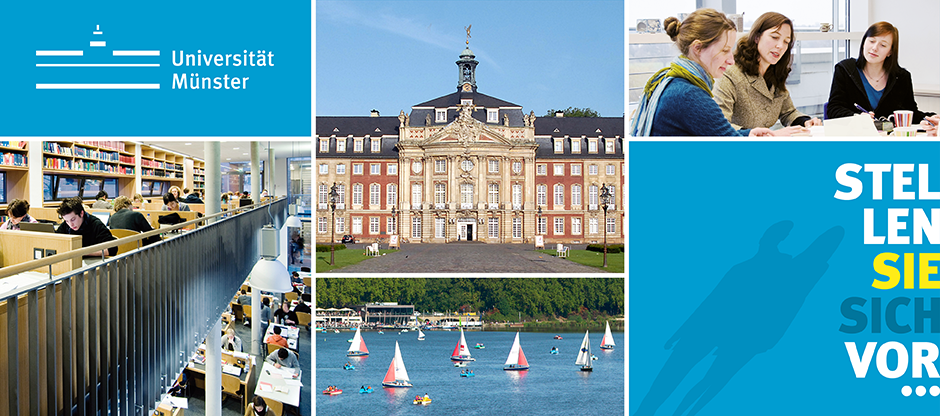
The International Research School of Battery Chemistry, Characterization, Analysis, Recycling and Application (BACCARA), funded by the state of North Rhine-Westphalia and sponsored by PowerCo, is part of the MEET Battery Research Centre and the Faculty of Chemistry and Pharmacy at the University of Münster, Germany. BACCARA is seeking to fill
8 Doctoral Research Associate Positions (Wissenschaftliche/r Mitarbeiter/in, salary level TV-L E 13, 67%)
as soon as possible. We are offering eight part-time positions (67% FTE) on a fixed-term basis for 3 years. These positions are tied to working towards a doctorate. The International Graduate School BACCARA offers a modern, comprehensive and interdisciplinary training program that enables its doctoral students to successfully carry out their research work while fostering personal development and, thus, preparing them for future successful careers in industry, administration/politics and academia. Several scientists from the University of Münster have teamed up to focus their complementary expertise on battery chemistry, characterization, analysis, recycling and the applications for batteries along the battery value chain. The interdisciplinary research activities, from which you can choose a topic for your doctorate, are centred on theory and modelling, material synthesis, catalysis, analysis and characterization, battery cell, recycling, sustainability and life cycle analysis, • Theory and Modelling Theoretical work is conducted on very different length and time scales using, for example, ab initio methods for the description of reaction processes, the determination of electrochemical stabilities and the optimization of force fields; molecular dynamics simulations for improved understanding of structural and kinetic processes in electrolytes, particularly close to interfaces; and machine learning concepts for improved analysis of experimental and simulated data. • Material Synthesis Within this research focus, new molecules and solid materials are to be synthesized in a targeted manner in order to positively influence key performance parameters such as internal resistance, temperature windows, battery life and intrinsic cell safety. The development of improved and sustainable synthesis pathways is also an important element. Furthermore, surface chemistry and physical properties play a decisive role in the establishment and optimization of new cell chemistries and battery cell production e.g. increased adhesion between the active material and current collector foil, or improved binding of binder molecules to the surface of the active material particles. • Catalysis In the field of lithium-ion batteries, catalysed reactions are of particular interest. The time- and cost-intensive formation stage after assembly and during the first charge is essentially based on a polymerization reaction of electrolyte constituents and lasts anywhere from several hours to days. Polymer-based solid-state batteries (SSBs) represent a broad field of research for catalysis research. Catalytic reactions for improved and sustainable synthesis of polymer electrolytes are to be researched and optimized within the framework of the research school. In addition, the understanding of catalytic decomposition processes can lead to an increase in the service life of materials and products, and reduced risk. • Analysis and Characterization Individual molecular and solid materials, and the complex system "battery cell", require a broad portfolio of methods and proven expertise in local and global material analysis in order to characterize different interfaces and interphases and investigate the micro- and nanostructures of pure substances and composites. Reaction mechanisms and complex interactions in the overall context of electrochemical systems have to be elucidated and, as a result, targeted modifications have to be made so as to improve stability and performance and continue to meet ever-increasing requirements. In addition, analytical investigations provide valuable information and details of dynamic processes, ion mobility and structure-property-performance relationships. Finally, model materials, e.g. pure materials, single crystals, or thin film electrodes allow mechanistic investigations that are difficult to perform with complex materials and electrodes. • Battery Cell Technology On the one hand, the battery cell serves as a technological demonstrator for developed materials. All developments of the previously described research disciplines converge in this research area. They are thoroughly electrochemical with regard to their interaction with the "battery cell" system and subjected to an in-depth post-mortem analysis (field of activity: "analysis and characterization") in order to elucidate reaction mechanisms and damage patterns. These findings are reflected back to the relevant focal points and the materials are iteratively optimized. On the other hand, the field of activity of “battery cells” is an independent, highly interdisciplinary research area. The battery cell combines scientific and engineering challenges and represents an interface technology where the complex interplay of mechanical-structural, chemical and morphological characteristics is investigated. All developments in the fields of activity described above converge in the "battery cell" research area. • Recycling, Sustainability and Life Cycle Analysis The successful and sustainable recycling of a battery cell begins with the design of the materials and the manufacture of the components. According to the so-called "Design for Recycling" practice, innovative materials and processes are being researched that enable the use of materials and, in the best-case scenario, individual components (e.g. electrodes) with minimal performance losses. Life cycle analyses can also be used to develop processes that enable the most energy-efficient separation and recovery of the individual cell materials, either as components or as raw materials. In addition, the findings are reflected in material synthesis and the battery cell topic complex in order to pave the way for the development of battery cells, constituent components and materials that are as sustainable as possible. Further information about the International Graduate School BACCARA can also be found on our homepage: https://www.uni-muenster.de/Baccara/. If you have any questions in advance, please write to the following address: baccara@uni-muenster.de.
Our expectations:
- A master’s degree in chemistry or a related field
- Documented knowledge in one of the above-mentioned topics
- An independent, structured approach to research work -
- High motivation, initiative and team spirit -
- Excellent command of the English language
- Team-oriented
- Good communication skills
- A willingness to work in international teams
- German language skills are not a requirement as we offer German courses as part of the program
Advantages for you:
- A position within a structured 3-year, cutting-edge PhD training program in and beyond the fields mentioned above.
- The opportunity to participate in courses in electrochemistry and a program of workshops, lectures and conferences.
- A competitive, interdisciplinary environment with a track record of intense collaboration.
- Individual training through research, retreats, international conferences and symposia. - Appreciation, commitment, openness and respect – values which are important to us.
- As an educational institution, we are deeply committed to offering occupational training and continuing education opportunities tailored to your individual needs.
- From A – Z, Aikido to Zumba, our sport and health programmes ensure a healthy work-life balance.
The University of Münster strongly supports equal opportunity and diversity. We welcome all applicants regardless of sex, nationality, ethnic or social background, religion or worldview, disability, age, sexual orientation or gender identity. We are committed to creating family-friendly working conditions.
We actively encourage applications by women. Women with equivalent qualifications and academic achievements will be preferentially considered unless these are outweighed by reasons which necessitate the selection of another candidate.
Application process;
Please complete the mandatory application form, which you can find on the following portal: https://www.uni-muenster.de/CPJobs, by 2024-11-10.
Please note that there is no additional "Submit" button in the portal, your application form is generated automatically after you have registered.
Please also note that the following mandatory requirements for considering your application have to be uploaded on the portal
- A complete CV
- A cover letter outlining your motivation and addressing why you specifically want to participate in the BACCARA program in Münster (maximum 1 page
Only complete applications received through the application portal can be considered.
We look forward to your application to become part of BACCARA!
Reference number: 2024_10_01



